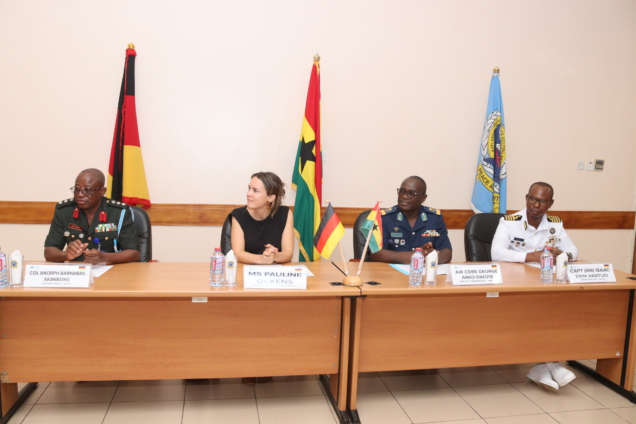The German government says it is committed to supporting the Kofi Annan International Peacekeeping Training Centre (KAIPTC) in building the capacity of maritime actors in Africa.
The KAIPTC, located in Ghana, is a renowned institution that provides training, research, and policy support in the areas of peacekeeping, peacebuilding, and conflict resolution.
Maritime security has become a crucial issue for Africa, as many countries on the continent have extensive coastlines and rely on maritime resources for economic development and regional trade.
However, maritime threats such as piracy, robbery, illegal fishing, and smuggling pose significant challenges to the stability and prosperity of coastal states.
Speaking to officially open the fifteenth Maritime Security and Transnational Organised Crime Course at the KAIPTC, Political Advisor at the German Embassy, Pauline Okkens, indicated that the German government remains committed to supporting the development and implementation of need-based training courses for maritime actors.
The move, she says is consistent with the German Government’s interest to support the African Union, ECOWAS and Member States in developing the capacity of key maritime security actors made up of military personnel, Police, civilians of states and non-state actors.
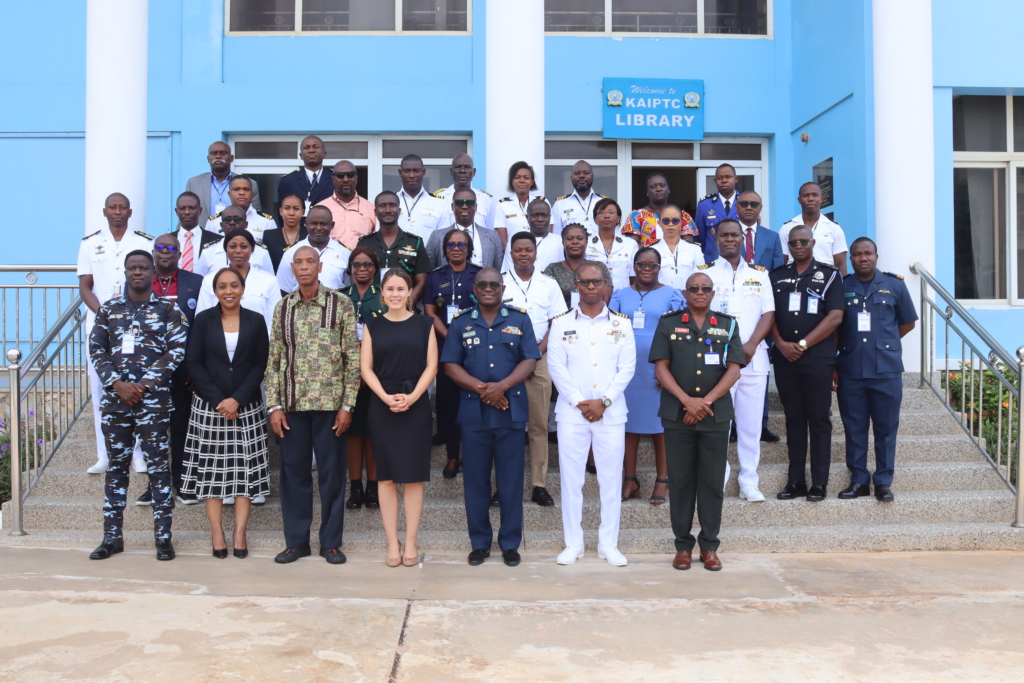
Ms Okkens stated that “Maritime insecurity, and particularly piracy in the Gulf of Guinea, continues to be a matter of grave concern to the global community as attacks on vessels and seafarers persist.
The evolving and increasing complexities of the modus operandi of pirates in the region as well as increased capabilities to attack vessels at longer ranges beyond 200 nautical miles is attracting the attention of international players.”
She further averred that a suspected piracy attack on Marine Tanker SUCCESS 9 about 370 nautical miles South of Abidjan on 10 April 2023 is a case in point.
This porous security situation, she intimated poses a threat to global shipping and maritime transport as well as undermines the prospects for economic development in countries within the region.
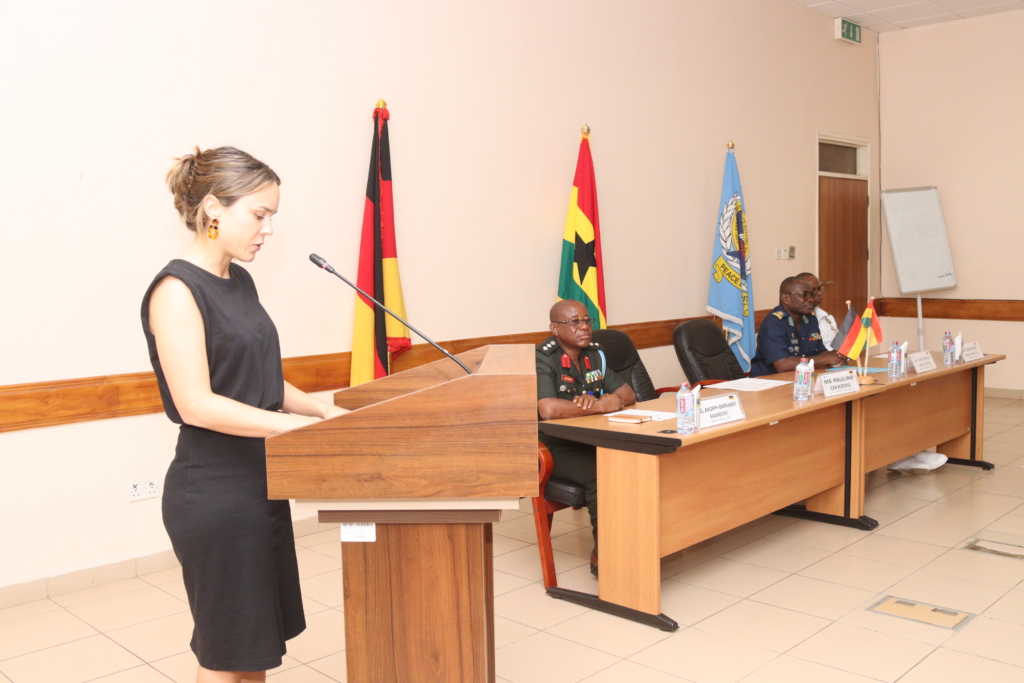
“It is, however, encouraging to note that, the concerted efforts over the last decade to mobilise national, continental and global actions to combat the threats posed by piracy and other transnational crimes, are yielding results.
"Available statistics from the West Africa Regional Maritime Security Centre (CRESMAO) confirms the continued marginal decline in piratical incidents within the Gulf of Guinea maritime domain in 2022,” she stated.
By partnering with the KAIPTC, the German government is convinced can contribute to enhancing the capabilities of African countries to address these maritime challenges effectively.
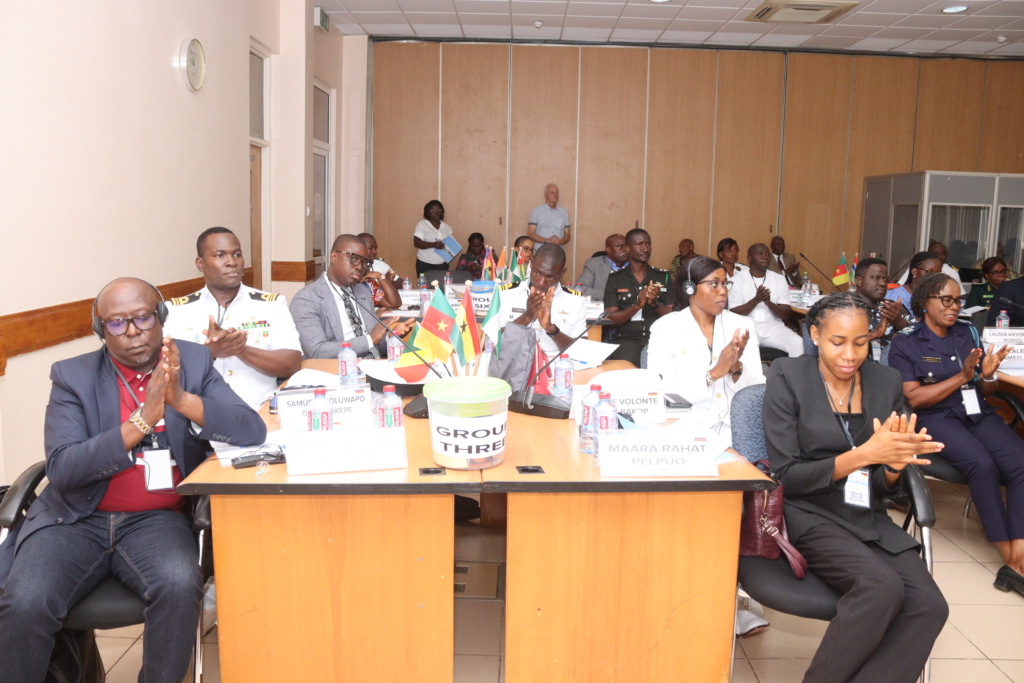
Pauline Okkens further averred that the general decline in the number of incidents, the threat of pirate activities in terms of the mass kidnapping of the crew, destruction to vessels, the violence meted out to crew and robbing of crew belongings remained potent.
“A good example is the hijacking and subsequent kidnapping of 6 crew members of Liberian-flagged Product Tanker MONJASA REFORMER, at about 140 nautical miles West of Poite-Noire, Republic of Congo, on 25 March 2023,” she averred.
The Deputy Commandant of the Kofi Annan International Peacekeeping Training Centre, Air Codr George Arko-Dazie, indicated that the Centre was grateful to the people and government of the Federal Republic of Germany for their continuous support of such training events.
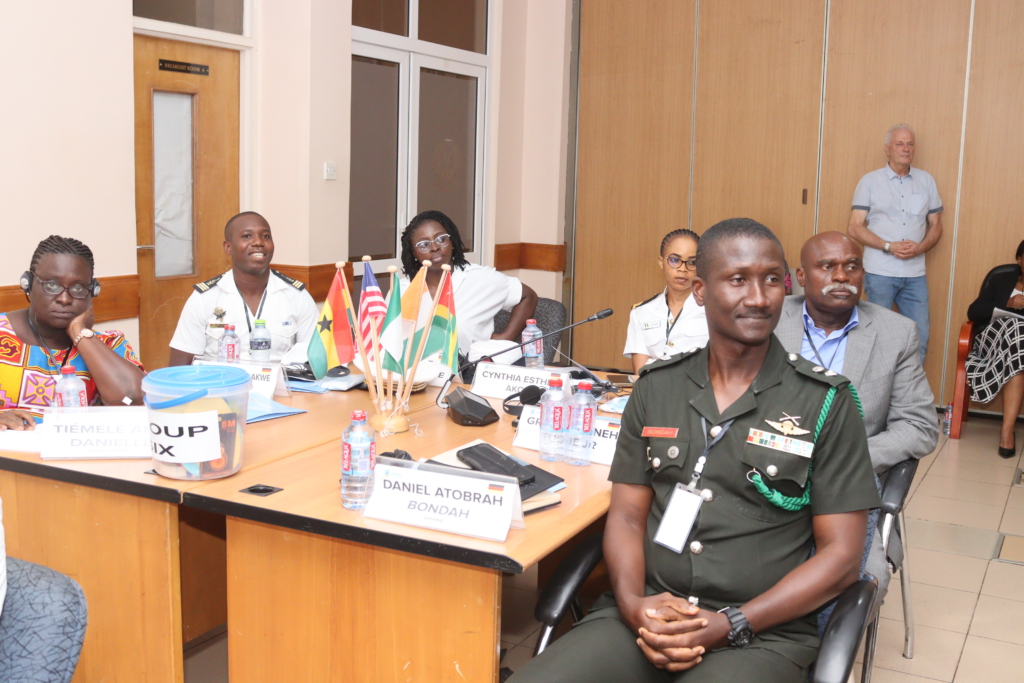
The course, he says, is particularly important because, the maritime domain is essential to global mobility and trade and is an abundant source of vital resources, from food to energy.
He further stated that the ability to traverse, exploit, and share this vast expanse is crucial to the security and prosperity of every nation around the world.
“Unfortunately, this shared space has become an arena for conflict through intrusion, exploitation, and attacks by myriad competitors that threaten nefarious actions and violent trends on a daily basis,” he stated
The Deputy Commandant says there is no denying that the Gulf of Guinea is a global hotspot for piracy and robbery at sea and although there had been a downward trend of piratical activities over the past year, the region remained unattractive to seafarers.
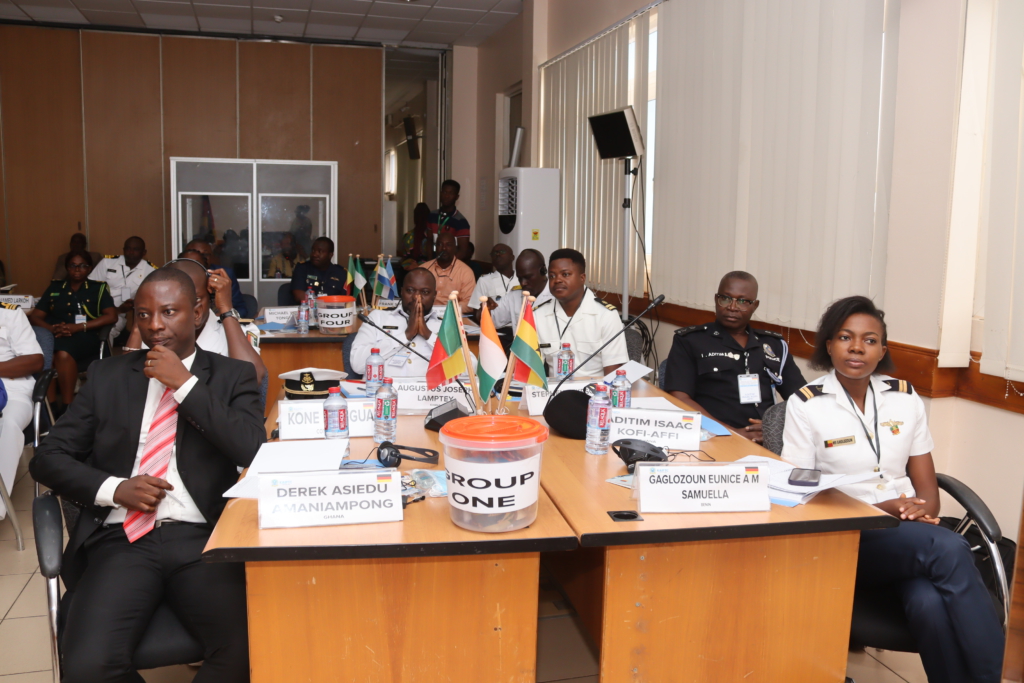
He emphasized that shipping which is the means by which about 90 per cent of the region's trade is transported has seen a tremendous increase in cost, and as a result, some shipping companies have factored the cost of independent security contractors, extra insurance, and, sometimes, ransom money into the overall cost of shipping in the region.
“It is only through combined efforts by coastal states the threat posed by piracy and other transnational organized crimes can be combatted effectively,” he indicated.
The two-week course assembled 34 participants drawn from 13 of the 26 Gulf of Guinea countries.
Latest Stories
-
Shamima Muslim urges youth to lead Ghana’s renewal at 18Plus4NDC anniversary
52 minutes -
Akufo-Addo condemns post-election violence, blames NDC
59 minutes -
DAMC, Free Food Company, to distribute 10,000 packs of food to street kids
2 hours -
Kwame Boafo Akuffo: Court ruling on re-collation flawed
3 hours -
Samuel Yaw Adusei: The strategist behind NDC’s electoral security in Ashanti region
3 hours -
I’m confident posterity will judge my performance well – Akufo-Addo
3 hours -
Syria’s minorities seek security as country charts new future
3 hours -
Prof. Nana Aba Appiah Amfo re-appointed as Vice-Chancellor of the University of Ghana
4 hours -
German police probe market attack security and warnings
4 hours -
Grief and anger in Magdeburg after Christmas market attack
4 hours -
Baltasar Coin becomes first Ghanaian meme coin to hit DEX Screener at $100K market cap
4 hours -
EC blames re-collation of disputed results on widespread lawlessness by party supporters
5 hours -
Top 20 Ghanaian songs released in 2024
5 hours -
Beating Messi’s Inter Miami to MLS Cup feels amazing – Joseph Paintsil
5 hours -
NDC administration will reverse all ‘last-minute’ gov’t employee promotions – Asiedu Nketiah
5 hours

